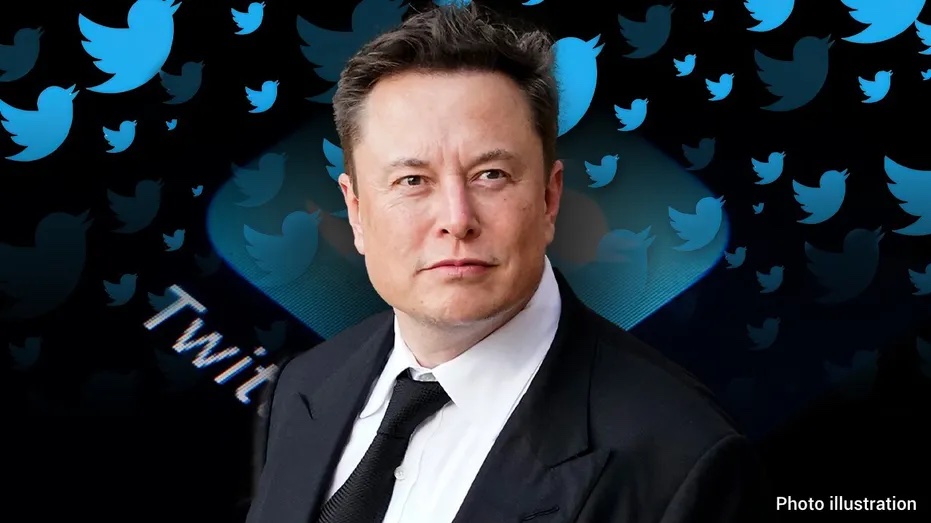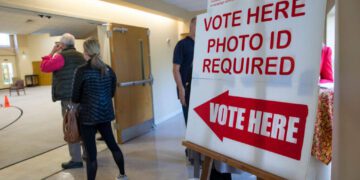By John F. Di Leo, Opinion Contributor
We naturally think of our Founding Fathers as the heirs of the early settlers – those courageous men and women whose grandparents and great grandparents had come from England, Scotland, or Holland, fleeing religious persecution as Christians of a different denomination than the ruling class, or seeking freedom and opportunity in a new land. And many certainly were.
But some of our Founding Fathers – some of the greatest heroes, in fact – were foreigners who heard about our cause and felt it in their hearts. New arrivals, from Europe or the Caribbean, who heard of the American independence movement and booked passage on the first ship westbound to become a part of it.
Casimir Pulaski and Tadeusz Kosciuszko, for example. Two Polish soldiers who independently traveled to the New World to see if they could help our cause. Pulaski led a mixed regiment of American and foreign recruits in numerous battles in the early years of the war and is considered the Father of the American Cavalry. Kosciuszko was a combat engineer who not only led troops in battle, he oversaw such key tasks as positioning temporary fortifications before significant battles, and designing the longterm fortifications around West Point.
We all know the story of the young French noble Gilbert du Motier, known to the world as the Marquis de Lafayette, who decided to support our cause at 18 and sailed to America at his own expense, quickly becoming a member of General Washington’s personal staff and serving in command at numerous battles, culminating with our success at Yorktown.
Alexander Hamilton too, a lad of Scottish and French parentage, raised in poverty in the Virgin Islands, arrived for school as a teenager and became a leader in the Glorious Cause of independence within months of his arrival, first as an eloquent apologist for the cause in the newspapers (fighting in print against his own loyalist college dean!), soon joining General Washington’s military staff. Eventually, this immigrant was to become one of the primary movers in the ratification of our Constitution, as both a primary advocate for the convention and as principal author of The Federalist.
Perhaps the most immediately effective of such foreigners was the amazing polemicist Thomas Paine, who arrived from Britain at the end of 1774, and became editor of the first successful American magazine in early 1775. Just thirteen months after his arrival on these shores, Tom Paine wrote and published Common Sense, the most successful American book in history. That one short volume singlehandedly transformed our independence movement from a fringe, minority theory in January to a popular enough position that the American people would accept the revolutionary Declaration of Independence when issued by the Continental Congress six months later.
Why did these patriots risk life and limb for a country that was, to them, foreign soil?
They read of our political efforts – the American philosophy, and the Glorious Cause – and recognized a movement that called to their very heart and soul. Something about this new federation, situated on a new hemisphere, in fact, filled them with a feeling that they had found a second home, a true home, one worthy of their sacrifice.
Our nation’s star has grown tarnished in these past 250 years. The purity of our country’s devotion to human liberty has been diminished as limited government has largely given way to a regulatory state.
So it’s hard to imagine that such a thing as this wave of patriotism in a recent foreigner’s heart could still happen today, but it does. Popular writer Dinesh D’Souza and radio talk show host Sebastian Gorka, for example, grew up abroad – D’Souza in India and Gorka in England – and were drawn to America by the same Freedom Philosophy that animated our Founding Fathers. So it does happen, sometimes.
And in 2022, against all odds, we add another name to that list: the tech mogul and current boss of Twitter, Elon Musk.
To say this was unexpected is putting it mildly. While he is an undisputed genius in the business world and a master innovator in tech and manufacturing, he has made much of his success by capitalizing on government subsidies and the left’s irrational belief in the cult of climate change. He’s more honest than most about this; he fully acknowledges that electronic vehicles are a niche product that cannot possibly fully replace the gasoline engine anytime soon; if only the EV-devotees in Detroit would speak so frankly.
Still, he has made his name in that arena, the arena of the regulators and subsidizers, the central planners and the one-worlders. They want to mandate electronic vehicles; he’s happy to build electronic vehicles. A match made in Beijing, one would think.
But no. Elon Musk bought Twitter, seemingly on either a lark or a wildly optimistic investment bet, and he quickly discovered – or perhaps knew all along? – that the longstanding conservative complaints about Twitter’s practice of shadow-banning were right on target. Twitter had long been engaging in practices that are incredibly un-American, the very embodiment of the kind of censorship that America – and old-fashioned liberals in particular – have always derided.
Once he got hold of the business, he personally threw himself into the project, in the detailed research, deep-dive study manner for which he is known. And he courageously began releasing evidence – not just summary reports but the undeniable, concrete internal correspondence, proving a pattern of abuse that simply must be recognized as criminal.
In the first ten days of revelations known as The Twitter Files, Elon Musk released five buckets of evidence proving three different kinds of abuses:
1: A conspiracy to interfere with the 2020 election by burying news stories, along with further personal conversation, about the fully authenticated Hunter Biden laptop which was itself full of incriminating evidence about the high crimes of the Biden crime family. This data dump proved that there was a conspiracy between government employees, Democratic party operatives, the Biden campaign, and Twitter leadership to deny the American voter the very information that would likely change millions of votes… and the reader realizes that Twitter could not have been alone in this end run around the First Amendment; such a conspiracy simply must have occurred at such other social media conglomerates as Facebook and Google as well.
2: A conspiracy to not only ban prominent conservatives over the years, but more deviously, to allow them to think they had a voice, while erecting hidden walls to limit their reach, burying conservative information at every turn, using algorithms such as what they called “visibility filtering.” The concept long known generally as shadow-banning turns out to have been more complex and far-reaching at Twitter than we ever thought. In some ways, it’s worse than de-platforming. At least when you’re ejected, you know you’re ejected. Twitter’s limits on reach make a person think he has an audience but he really doesn’t. It whittles away one’s confidence in one’s own communication skills, because one can’t explain the lack of response despite extensive follower/friend lists. This isn’t just sneaky, it’s nasty. And it’s censorship. And it too was apparently designed in collusion with government actors.
3 through 5: This series constituted a conspiracy to interfere with public opinion around the Congressional handling of the Electoral College in and around January 6, 2021. In addition to censorship of the President’s supporters, Twitter ultimately decided to ban President Trump himself from their site, to ensure that the general public was only exposed to the Democrat view of the proceedings. Realizing that even the broadest reading of their own rules could not allow it, Twitter’s old leadership created rules on the fly as January 6 neared, to give themselves permission in the future to ban any politician from using Twitter for political speech with which they disagreed. Again, the evidence shows collusion between the rogue actors in the federal government, and Democrat political operatives, and Twitter’s upper echelon. In a particularly odd twist, Twitter’s then-leadership appears to have followed instructions from former First Lady Michelle Obama in making the final outrageous decision to deplatform the then-current President of the United States.
These are the first five releases of The Twitter Files, as of this writing. Much more is expected to follow in short order, and much more will be written about them, though we have seen enough already to come to certain unassailable conclusions.
What Elon Musk has revealed – and continues to reveal – is that a coup d’etat indeed occurred in in the 2020 election. Even without the massive vote fraud, far more than usual, that occurred in various states, it’s clear from the Hunter Laptop spiking that critical information was kept from the public – information that opinion polling proved would have swung at least 17% of Biden voters to President Trump, creating a Trump landslide.
If people heard the news and chose not to act on it, that’s not a coup. But if rogue federal actors colluded with campaigns to pressure publishers like Twitter to hide the stories, an incalculable in-kind campaign contribution, as we now know they did, then that is indeed a violation of the Hatch Act, the First Amendment, FEC campaign finance law, and much, much more.
We have all seen crime movies and television shows in which the star witness – the one who has the goods on an organized crime kingpin – needs and receives protection, because such a witness has made himself a target; he essentially needs to be jailed for his own safety until the criminal goes to prison.
Elon Musk is such a star witness, and is likely in such danger. He has in the past two weeks produced enough evidence to indict, and in some cases impeach, dozens of corrupt politicians in and around the current White House and the DoJ. In the nation’s fallen condition, it is certainly possible that we will not see the indictments and impeachments that ought to follow.
But even if the criminals don’t go to jail, even if they seemingly get away with it, the cat is out of the bag. Elon Musk has risked it all, from his financial position to his very life, to shine the light of truth on these crimes. He’s not a conservative; he’s certainly not a platform Republican, but he believes in truth and free speech, and he opposes censorship… and his actions certainly show a devotion to the American ideal that few people in his exalted position have displayed in generations.
And how do we Americans receive this information? It’s mixed: our horror and righteous anger at this high level corruption in government, media, and high technology is counterbalanced by our respect and appreciation for Elon Musk, the South African born immigrant who found himself to be such a strong supporter of America’s commitment to liberty that he risked everything to expose the coup d’etat that put the Biden-Harris regime in place.
Copyright 2022 John F. Di Leo
John F. Di Leo is a Chicagoland-based trade compliance trainer and transportation manager, writer, and actor. A one-time county chairman of the Milwaukee County Republican Party, and former president of the Ethnic American Council, he has been writing regularly for Illinois Review since 2009.
A collection of John’s Illinois Review articles about vote fraud, The Tales of Little Pavel, and his 2021 political satires about current events, Evening Soup with Basement Joe, Volumes One and Two, are available, in either paperback or eBook, only on Amazon.
Don’t miss an article! Sign up for the free subscription service on Illinois Review so you always know when we publish new content!
By John F. Di Leo, Opinion ContributorWe're hearing a lot of complaints about the tariffs, and I understand that, since we all hate taxes, as we should. Republicans...
Read moreDetails








